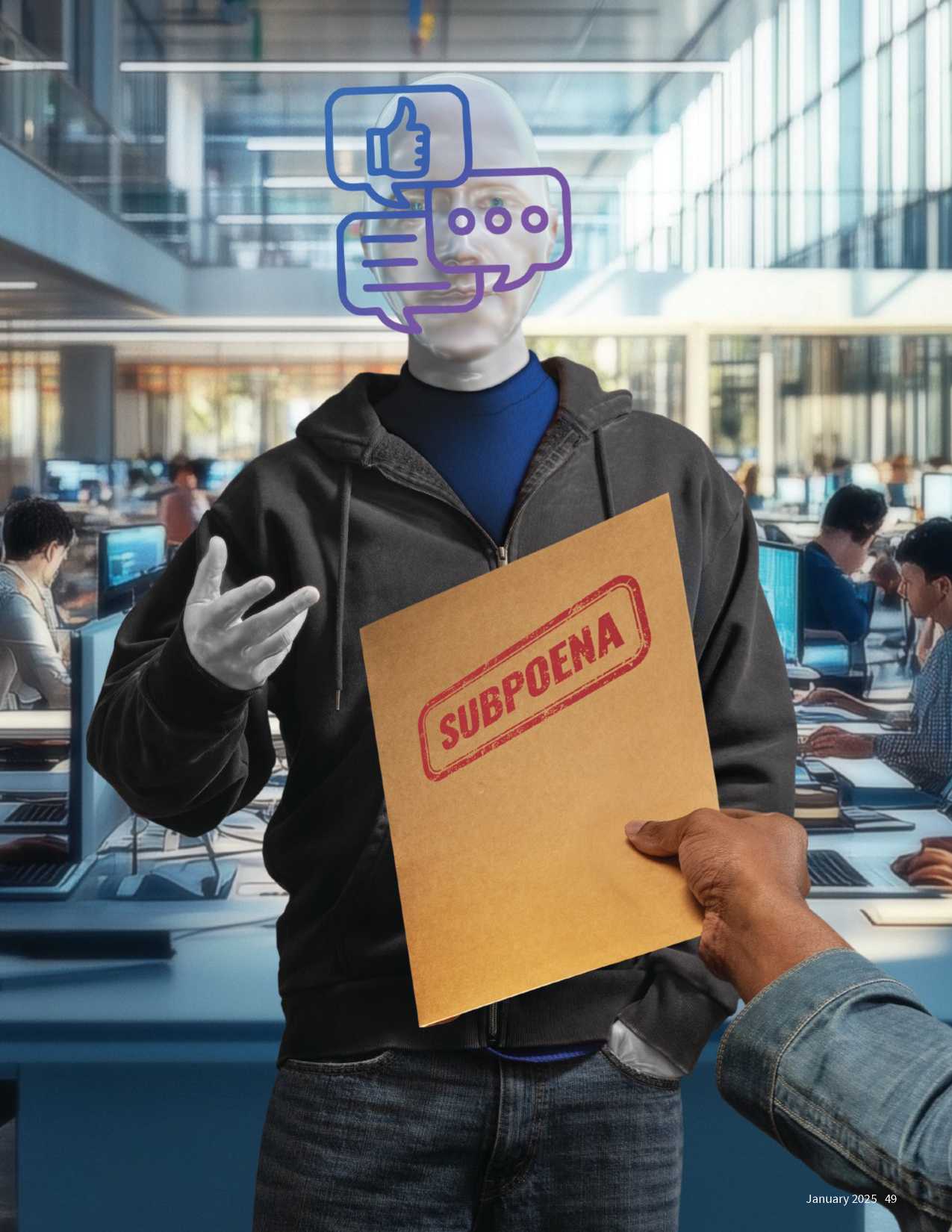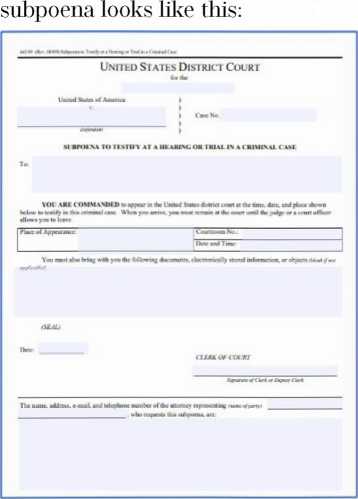FEATURE
Criminal Defense Social Media Subpoenas
By Alicia Vachira Penn
If you subpoena a company like Meta or Snap. Inc. for records, what will you get? The answer depends on who you are. what you ask for. where you ask for it, and what you argue.
If you are a prosecutor[1] you can use warrants, subpoenas, and wiretaps to obtain the contents of communications and subscriber information from social media companies. Facebook has a webpage just for law enforcement to submit their request via a "Law Enforcement Online Request System."[2]
If you are a criminal defense counsel, there is no convenient link for you. The current landscape of social media subpoenas currently looks like this: if you ask for records of messages sent to your client, you should get them. 18 U.S.C. § 2702(b)(i)(2018); see also Facebook, Inc. u Pepe. 241 A.3d 248 (D.C. 2020). If you ask for subscriber information (i.e., tilings that are not considered contents of communications). you should get it. 18 LLS.C. § 2702(a)(1)(2018).
But what if you need a message that was not addressed to your client? Or photographs that were posted on someone else's page? Here we run into the Stored Communications Act ("SCA"), enacted by Congress hi 1986.18 U.S.C. §§ 2701-2712(2018). Some courts have interpreted the SCA to allow major technology companies to refuse to comply with criminal defense subpoenas,[3] while one[4] has recently held the SCA doesn't apply to major technology companies at all.
Legal scholars have identified the threats to justice caused by allowing subpoena avoidance and have outlined multiple solutions. In 2021 Rebecca Wexler argued major technology companies have enjoyed an undeserved court-created subsidy. "Privacy as Privilege: The Stored Communications Act and Internet Evidence,'' 134 Harv. L. Rev. 2721 (2021).[5] Wexler's scholarship provides a new path for defense counsel to argue the SCA does not and should not bar criminal defense subpoenas. The next year, Yale Law Journal published Rebecca Steele's article "Equalizing Access to Evidence Criminal Defendants and the Stored Communications Act," 131 Yale L.J. 1584 (2022).[6] Steele's article provides a list of ways to access contents of communications within the boundaries of the SCA, plus sets out the constitutional challenges that should be made when the SCA is claimed as a shield.
This article compiles some of the law. rules, and arguments relevant to criminal defense counsel's

quest to obtain social media evidence for a case.
Federal Rule of Criminal Procedure 17: Subpoena
A federal subpoena may order a witness to produce "any books, papers, documents, data, or other objects." Fed. R. Crim. P. 17 (c)(1). The subpoena must state the court's name and the title of the proceeding. include the seal of the court, and command the witness to attend and testify when the subpoena specifies. Fed. R. Crim. P. 17 (a). The clerk must issue a blank subpoena—signed and sealed—to the party' requesting it. and that party must fill in the blanks before it is served. Fed. R. Crim. P. 17 (a). A typical

Subsection (b) of rule 17 provides for ex parte applications by the defense. "Upon a defendant's ex parte application, the court must order that a subpoena be issued for a named witness if the defendant shows an inability to pay the witness's fees and the necessity of the witness's presence for an adequate defense." Fed. R. Crim. P. 17 (b). Generally, the party seeking the 17(c) subpoena must show the documents are relevant, not otherwise reasonably procurable, needed for trial preparation and their absence might cause delay, and are being sought in good faith and not for a fishing expedition. United States v. Nixon, 418 U.S. 683, 699 (1974)-
A party commanded to produce documents under a subpoena can fight the subpoena by filing a motion to quash or modify the subpoena. Fed. R. Crim. P. 17(c)(2).
South Carolina Rules of Criminal Procedure 13(a)(1): Issuance of Subpoenas
South Carolina Rule of Criminal Procedure 13(a)(1) states any party can request the clerk of court to issue a subpoena for any person or persons to attend as witnesses in any cause or matter in the General Sessions Court, and that the subpoena shall command the person "to attend and give testimony, or otherwise produce documentary evidence at a specified court proceeding."
Anecdotally.[7] the 2019 amendment to the South Carolina Criminal Subpoena role has had a chilling effect on defense attempts to obtain relevant evidence. In 2020, the South Carolina Office of the Attorney General opined few subpoenas would be allowed by rule 13(a)(1). 2020 WL 3120244 (S.C.A.G. May 22, 2020). Citing to caselaw from the District of Arizona in 2006. the Southern District of New York in 1951, the 6th Circuit in 1975, the 8th Circuit in 1993, the 10th Circuit in 1997, and South Carolina Rule of Civil Procedure 45, the opinion posits that subpoenas are only allowed for a "scheduled formal proceeding, such as a hearing or trial it is our opinion that the parties are not authorized to issue subpoenas duces tecum for the inspection of documents prior to a hearing or trial." Id.
This reading of rule 13(a)(1) should be challenged. It needlessly turns "specified court proceeding" into "scheduled hearing or trial, not before the scheduled hearing or trial, and not an appearance date...a scheduled formal hearing such as a hearing or trial" The opinion does concede the procedural questions are fact-specific and "unlike a court, we cannot adjudicate facts or make independent findings of fact in an opinion." At time of writing, no caselaw was found that litigated the parameters of a "specified court proceeding" for the purposes of the rule.
The next step for any party seeking to subpoena social media contents is to follow the Uniform Act to Secure the Attendance of Witnesses from Without a State in Criminal Proceedings, S.G. Code § 19-9-70. To serve an out-of-state subpoena in California, where Meta or Snap, Inc. are based, the subpoena must be domesticated[8] there.
Some companies, when faced with a criminal defense subpoena, will use the Stored Communications Act to excuse their non compliance. Section 18 USC 2702 (a)[9]...
